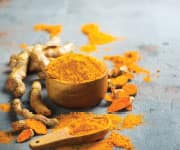Life Extension Magazine®
Inadequate Fruit and Vegetable Intake Results in Millions of Deaths Worldwide
Low fruit intake causes 1 in 7 deaths from heart disease, and low vegetable intake causes 1 in 12 deaths from heart disease, according to research presented at the annual meeting of the American Society for Nutrition.*
Researchers analyzed diet surveys and food availability data from 113 countries and combined them with data on causes of death and cardiovascular risk linked to low fruit and vegetable intake.
They found that low fruit consumption resulted in more than 1 million deaths from stroke, and more than 500,000 deaths from cardiovascular disease per year worldwide.
And low vegetable consumption resulted in more than 200,000 deaths from stroke and more than 800,000 deaths from cardiovascular disease per year worldwide.
Fruit intake was lowest among people in South and East Asia and Sub-Saharan Africa, and vegetable intake was lowest in Central Asia and Oceania.
Federal guidelines recommend consuming 1.5-2 cups of fruit and 2-3 cups of vegetables per day, yet only 1 in 10 adults meets these recommendations, according to the Centers for Disease Control and Prevention.
Editor’s Note: “These findings indicate a need to expand the focus to increasing availability and consumption of protective foods like fruits, vegetables, and legumes – a positive message with tremendous potential for improving global health,” said study author Dariush Mazaffarian.
* Available at https://www.medicalnewstoday.com/articles/325459.php
Salk Institute Team Develops Fisetin, Curcumin, Compounds that Slow Aging

An article published in Trends in Pharmacological Sciences reported that researchers from the Salk Institute in La Jolla, CA have synthesized potential treatments for Alzheimer’s and other neurodegenerative diseases from two compounds that have already been identified as geroprotectors.*
Dr. David Schubert and his colleagues explained that, “Geroprotectors are compounds that slow the rate of biological aging and therefore may reduce the incidence of age-associated diseases such as Alzheimer’s disease.”
Starting with the geroprotectors curcumin (which is derived from turmeric) and fisetin (found in strawberries and other fruits and vegetables), the researchers synthesized three compounds labeled CMS121, CAD31, and J147. These compounds and their parent compounds, dubbed “geroneuroprotectors,” decreased molecular markers of aging and dementia in mice and flies and extended their median lifespan.
“If these drugs have benefits for other body systems, such as maintaining kidney function and overall muscle health, they could be used in additional ways to treat or prevent the diseases of aging,” Dr. Schubert said.
Editor’s Note: Senior author Dr. Pamela Maher noted that, “Since we found that the natural products curcumin and fisetin are also GNPs [geroneuroprotectors] and commercially available as supplements, they could provide some therapeutic benefits right now.”
* Trends Pharmacol Sci. 2018 Dec;39(12):1004-1007.
Vitamin-D Deficient Older Adults May have Greater Odds of Developing Depression

Researchers at Trinity College in Dublin, Ireland reported a 75% increase in the likelihood of developing depression among older individuals with deficient levels of vitamin D.*
The investigation included 3,965 participants aged 50 and older who participated in the Irish Longitudinal Study on Aging. Blood levels of vitamin D were measured on enrollment and the presence of depression was evaluated at two and four years.
Being deficient in vitamin D was associated with a 75% increase in the likelihood of developing depression over the follow-up period than for people who had nondeficient levels.
“This is the largest representative and most comprehensive study of depression risk and vitamin D status in older adults ever conducted in Ireland,” stated first author Dr. Robert Briggs. “Our findings will provide useful information to help inform public health policy—particularly regarding the proposition of the usefulness of vitamin D treatment/supplementation for depression.”
Editor’s Note: Senior author Dr. Eamon Laird said that, “This study shows that vitamin D is associated with a health condition other than bone health. What is surprising is the large effect on depression even after accounting for other control variables.”
* J Am Med Dir Assoc. 2019 May;20(5):517-523.
Drinking Coffee May Reduce Risk of Developing Type II Diabetes

The results of a meta-analysis of more than one million subjects, reported in Nutrition Reviews, indicated that the risk of developing type II diabetes was lower in coffee drinkers in comparison with individuals who didn’t drink coffee.*
Researchers analyzed data from 30 prospective studies published through 2017 that included a total of 1,185,210 people, 53,018 of whom had developed type II diabetes.
A pooled analysis of the subjects revealed a 29% lower risk of developing diabetes in those who were in the highest category of coffee consumption (at a median intake of five cups per day) compared to the group who drank no coffee. For every cup per day increase in caffeinated coffee consumption, the risk of developing type II diabetes was lowered by 7%. Drinking decaffeinated coffee lowered the risk of type II diabetes by 6% per additional cup.
Editor’s Note: The researchers concluded that, “Available evidence indicates that coffee consumption is inversely associated with risk of T2D [type II diabetes]. Possible mechanisms behind this association include thermogenic, antioxidative, and anti-inflammatory effects; modulation of adenosine receptor signaling; and microbiome content and diversity.”
* Nutr Rev. 2018 Jun 1;76(6):395-417.
Use of Aspirin, Ibuprofen, May Improve Survival Rates for Head and Neck Cancer

Regular use of common, over-the-counter pain relievers can improve the survival rates of patients with certain head and neck cancers, according to an article published in The Journal of Experimental Medicine.*
The study, with a cohort of 266 patients, was led by University of California San Francisco researchers who studied the medical records of the individuals and tissue samples from their surgically-removed tumors.
The results showed that patients whose cancer contained a specific, altered gene, known as PIK3CA (phosphoinositide-3-kinase, catalytic, alpha polypeptide), and who regularly took non-steroidal, anti-inflammatory drugs (NSAIDs) such as aspirin and ibuprofen, for at least six months, had markedly improved survival rates. Patients whose tumors did not contain the altered gene did not benefit from regular NSAID use.
The overall, five-year survival rate for head and neck cancer, about 45%, rose to 78% in patients in this cohort who had the altered gene and used NSAIDs. Most of the patients who regularly used NSAIDs began to do so after receiving the diagnosis of their disease.
The researchers concluded that further study is warranted in a randomized, clinical trial.
Editor’s Note: “Our results suggest that the use of NSAIDs could significantly improve outcomes for not only head and neck cancer patients, but also patients with other cancers that contained the PIK3CA mutation,” said senior author Dr. Jennifer R. Grandis.
* J Exp Med. 2019 Feb 4;216(2):419-427.

